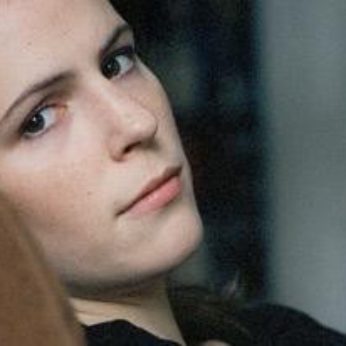Composer: Ernest Bloch (b. 1880 - d. 1959)
Performance date: 08/07/2016
Venue: Bantry Library
Composition Year: 1924
Duration: 00:20:46
Recording Engineer: Richard McCullough, RTÉ lyric fm
Instrumentation: vn, va, vc, pf
Instrumentation Category:Duo
Artists:
Nurit Stark -
[violin]
Cédric Pescia -
[piano]

Ernest
Bloch has multiple aliases. He was born in Geneva and quite rightly the Swiss
consider him to be one of their (very few) major composers. He spent much of
his life in the USA and indeed took out American citizenship in 1924, so the
Americans consider him one of theirs. Finally much of his music explores his
Jewish heritage leading to him being considered as primarily a Jewish composer.
In his lifetime he was much feted as both composer, conductor and teacher.
Since his death his name has mostly been associated with his major Jewish
works, in particular his Rhapsody for cello and orchestra Schelomo. Despite this Bloch remained very much his own man, an
independent, far from any school or system, whose sole concern was to be
sincere and true.
From
his youth he was a wanderer, his studies taking him to Geneva, Brussels,
Frankfurt and eventually Paris. It was during his years in Paris that Bloch
began to reflect on his own Jewish heritage and search for his sense of
identity. Bloch, who was far from
religious began to explore and express his Jewish heritage through music. Having returned to Geneva, Bloch worked on
his Jewish Cycle from 1912 to 1916,
completing it in the States. His first visit to USA was as orchestral conductor
for a dance troupe led by the notorious Maud Allen, who had scandalised
Edwardian England with her scantily clad version of Salomé. Midway through the tour, the troupe was bankrupted and
Bloch was stranded penniless. He survived some difficult years mostly through
teaching as his music gradually gained a public.
The
second of Bloch’s violin sonatas was composed in part to balance his first
turbulent sonata of 1920 which had left audiences confused and perplexed. For
the Second Sonata, he sets out to write music that is both ecstatic and
spiritual. It is a single-movement fantasy-like work, its four sections played
without a break. It places extreme technical demands on the performers, calling
for lyrical and soaring lines in high registers unfolding in a great, unbroken
arc of melodic inspiration. The story goes that the composition of Poeme
mystique was triggered by a dream brought about by a mild overdose of
Veronal, Bloch thus joining Coleridge in drug-inspired creativity.
The
whispered heights of the opening Andante gradually
melt into a torrent of inspired melody created out of the opening phrases. The Animato section further increases the
temperature before the white heat of the third section that juxtaposes quotations
from his own Jewish Cycle with
quotations from the Gregorian chant Kyrie
Fons Bonitatis, as if affirming the universal origin of mystical religion.
The final Animato revisits the
lyrical ecstasy of the earlier music as the circle is completed and intensified,
soaring higher and higher before the climactic close.
Copyright © 2025 West Cork Music. All rights reserved.
Designed and developed by Matrix Internet